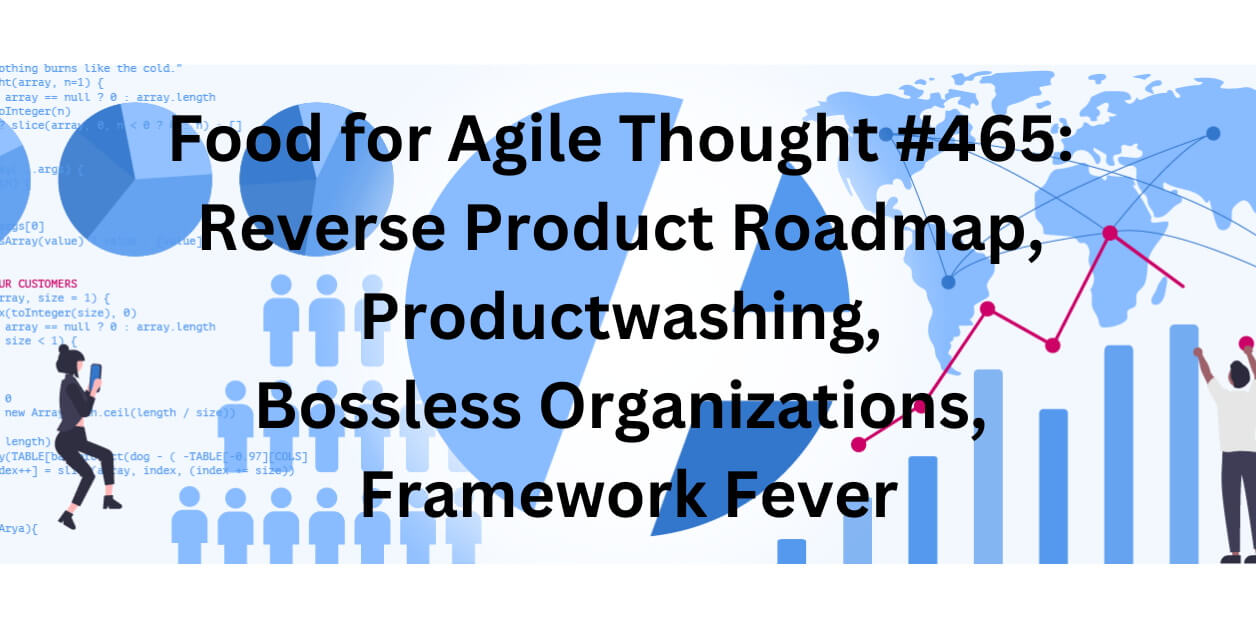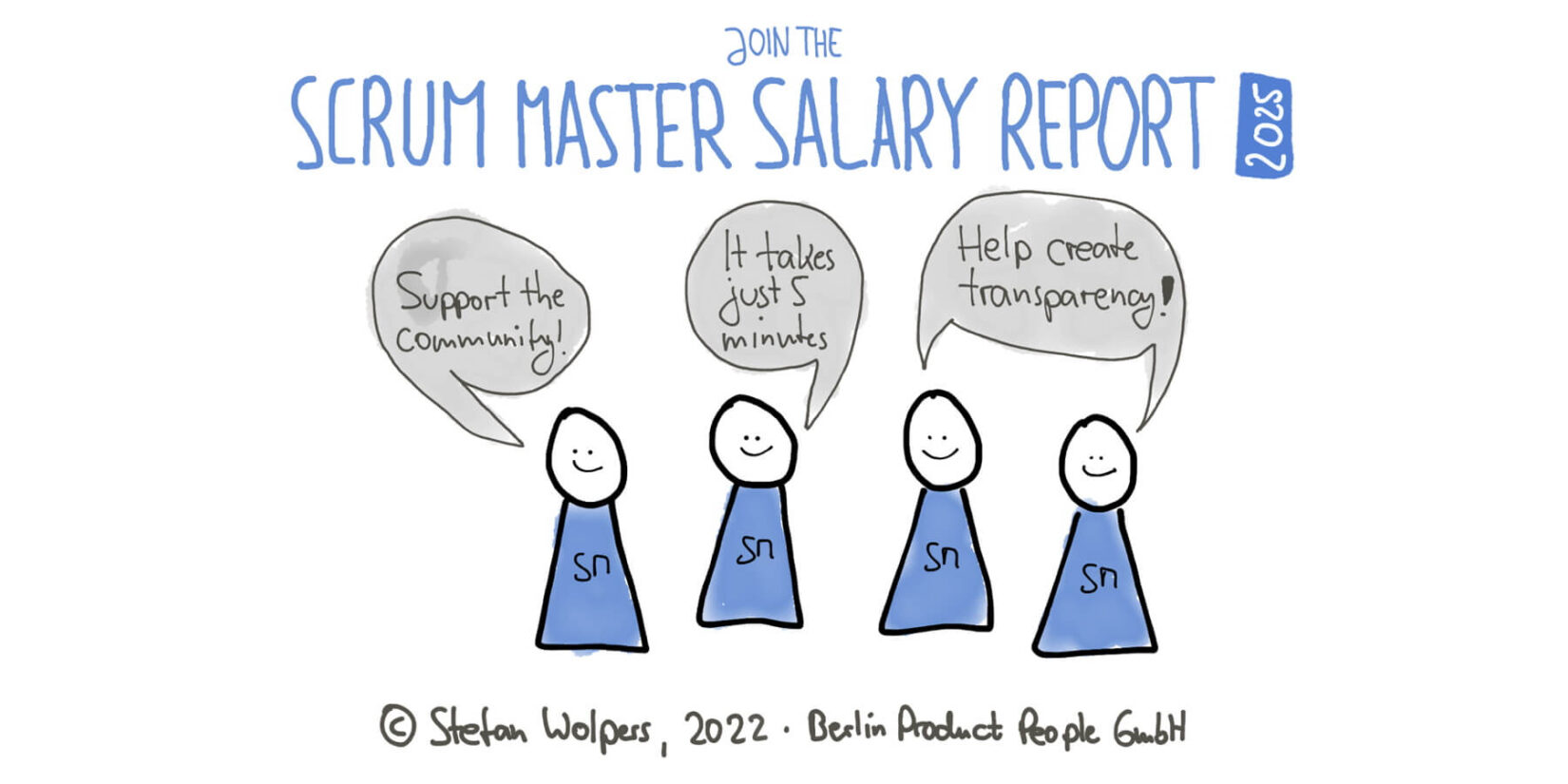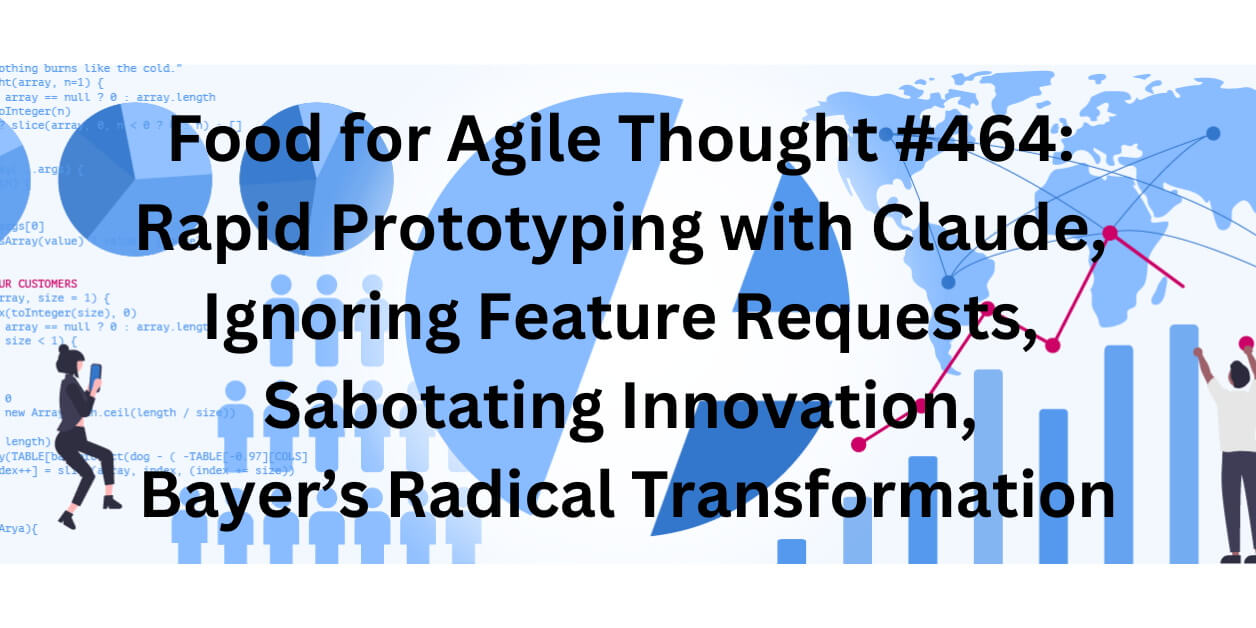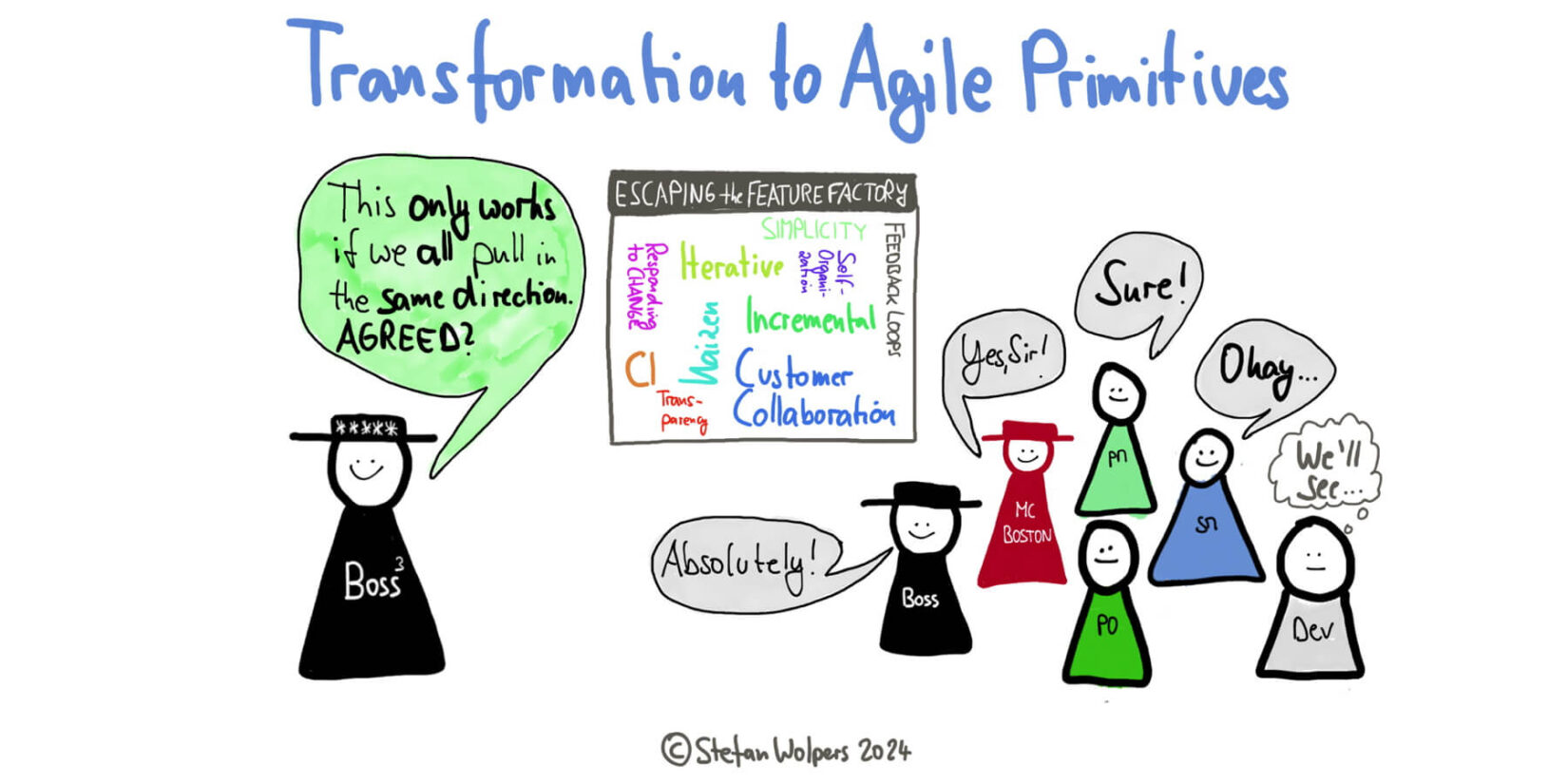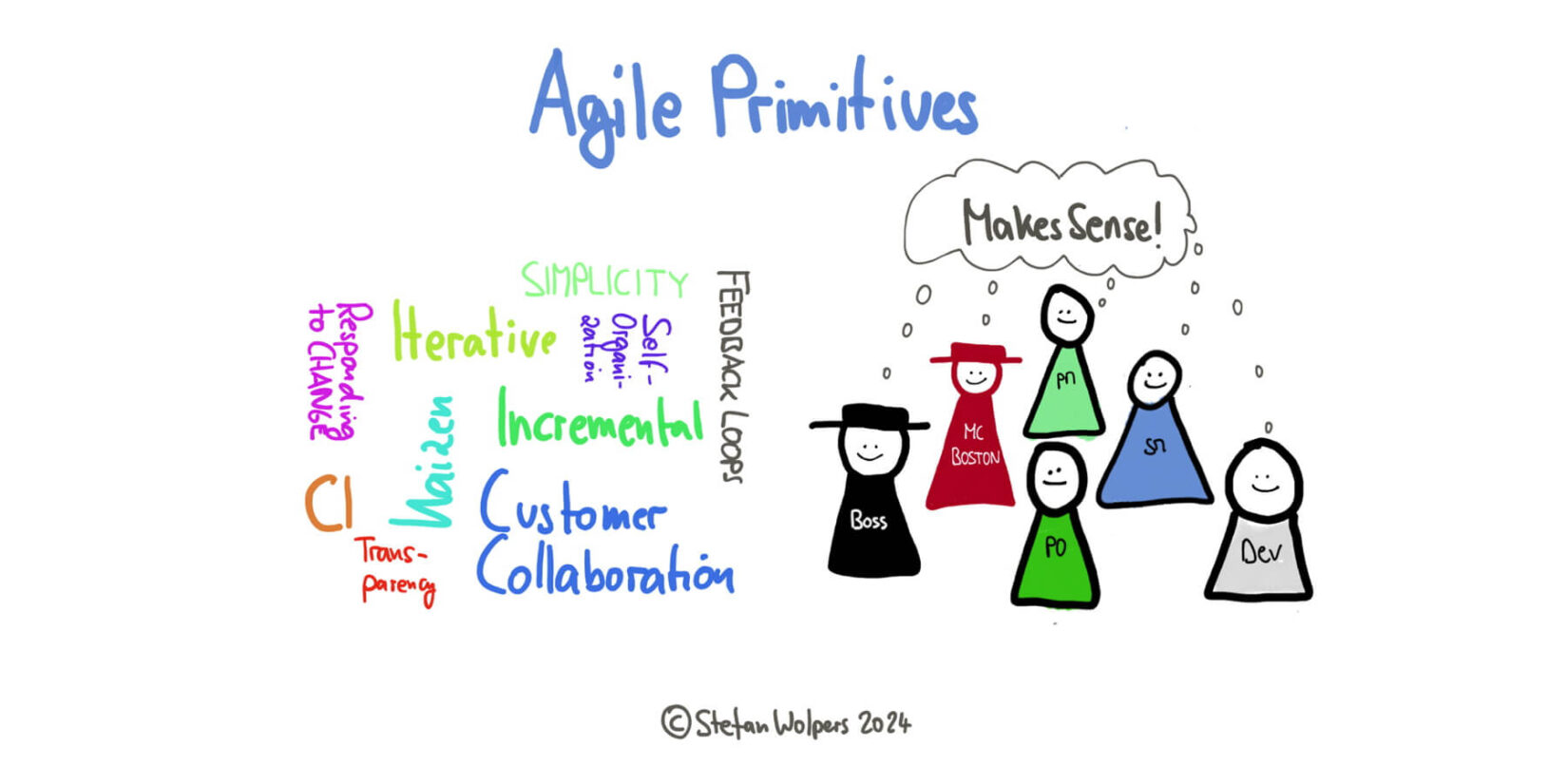TL; DR: Reverse Product Roadmap — Food for Agile Thought #465
Welcome to the 465th edition of the Food for Agile Thought newsletter, shared with 42,913 peers. This week, John Utz promotes a “reverse product roadmap” approach, focusing on feature elimination to simplify products. Mark Graban critiques command-and-control leadership for sabotaging Lean transformations by prioritizing cost-cutting, while Maarten Dalmijn warns against blindly adopting frameworks like SAFe without context. Also, Pim de Morree shares lessons from transforming Indaero into a bossless organization, and Ula Ojiaku highlights the dangers of “framework fever,” advocating for tailored, context-aware methodologies to prevent costly misalignments.
Next, Paolo Lacche introduces “product washing,” where companies falsely claim to implement product management, reducing PMs to powerless roles. Todd Lankford emphasizes delivering value over managing backlogs, offering actionable tips for Product Owners, and Warren Schirtzinger demystifies the misunderstood “crossing the chasm” concept, highlighting critical misapplications. Moreover, Aakash Gupta and Gagan Biyani delve into Maven’s cohort-based learning model, its scalability, the value of Product Management in startups, and long-term career strategies for job seekers.
Lastly, Viktor Cessan outlines how Viafree leveraged a remote Self-Selection process to transition disbanded teams, ensuring smooth integration and maintaining motivation, and Jock Busuttil addresses the backlash against the Spotify Model, emphasizing its evolution and enduring lessons. Eric Brechner shares strategies to avoid knowledge loss when key employees leave, while Soren Kaplan offers actionable steps to manage team conflict. Finally, Jerry Neumann challenges the belief in accelerating technology adoption, exploring the factors that truly influence adoption speed and societal impact.
